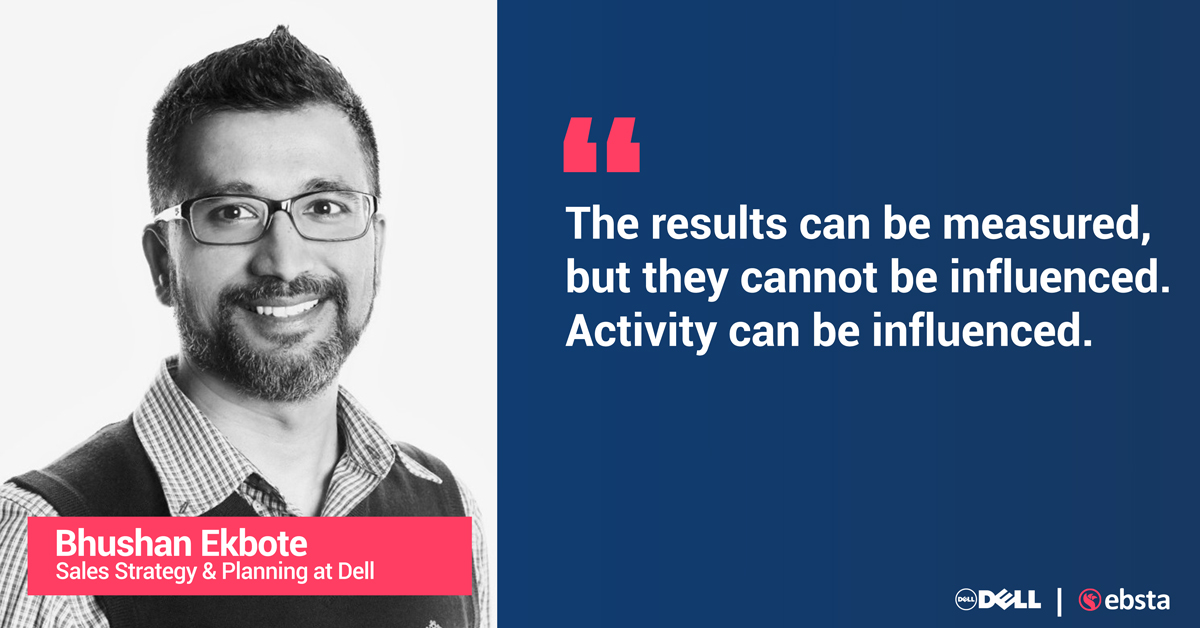Table of Contents
Share this article
Learn from the brightest minds how to predictably and efficiently grow revenue.
Related Content
The Data-Driven Sales Turnaround: 37% Growth in Under 12 Months ft. Shianne Sampson
In this episode of Revenue Insights, host Guy Rubin, CEO of Ebsta, sits down with Shianne Sampson, Global Vice President of Sales at Eventbrite, to explore how data-driven decision making, structured coaching, and intentional leadership can turn underperforming sales teams into high-performing engines of growth. With over 18 years of experience scaling sales organizations at…
Why Top Sales Leaders Get Coaching Wrong – And How an Olympian Fixes It with Matt Hemingway
In this episode of Revenue Insights, host Guy Rubin, CEO of Ebsta, sits down with Matt Hemingway, Vice President of Sales and Operations at Axcient, to explore how disciplined coaching, intentional leadership, and a culture-first mindset drive sustainable sales performance. Drawing on his background as an Olympic silver medalist, Matt shares how the mindset of…
How Top Performers Handle Objections 80% Earlier, with Hervé Timsit from EDB
In this episode of Revenue Insights, host Guy Rubin, CEO of Ebsta, sits down with Hervé Timsit, Chief Revenue Officer at EDB, to explore objection handling and the evolving landscape of enterprise software sales. With over 17 years of experience, Hervé shares insights on leading global sales teams, implementing data-driven strategies, and the critical role…
Sales Strategy & Planning: Bhushan Ekbote of Dell
Bhushan Ekbote jumped onto Sales Operations Demystified to share his knowledge and experience in Sales Operations. Check out all the other episodes of Sales Operations Demystified here.
You can learn more about:
Table of Contents
Tools
- Marketo
- Full Circle Insights
- LeanData
- ZoomInfo
- dun & bradstreet
- DiscoverOrg
- Callidus Cloud
- Salesforce CPQ
- Exactly
- Hoopla
- Sales.com
Key Takeaways
An interesting Journey to the Demand Side of the Business
Bhushan’s entry into sales operations was more an accident than an informed decision. Whilst working at Seagate, he got introduced to the demand side of the business and the mechanical engineer in him was quickly fascinated by forecasting cycles, processes, and the models in which they are built. Luckily, he got his break into this intriguing side of the business when Seagate was establishing its cloud division.
Here, he started off with demand planning and building models, and within his six and a half years he developed great experience in different segments of sales operations. His interest pushed him to venture deeper into the field, allowing him to enhance his portfolio as he gained more knowledge.
The factor that attracted Bhushan most to sales operations was the dynamism of the department. It was exciting for him that even though you might know about your product, the macroeconomic changes that come with it can quickly change the dynamics of the market. Hence, there is no boring day as new challenges emerge on a daily basis.
Experience of working at Dell’s vs. smaller organizations
The culture at Dell is not something that you would expect from such a big organization; it is comparatively more dynamic and agile. Bhushan explained that Dell believes in ‘theory of abundance’, i.e. the market is “always bigger” and there is always a room to make the pie bigger and that you don’t have to just take market share from competitors. At Dell, they work on how to improve the less successful departments to improve overall performance.
Bhushan now works from the strategic side of sales operations, more focused on the best use of resources while managing a big pool of 30,000 sales representatives, in smaller organizations he would be more tactical. We have seen this time and time again with guests… if you want to be strategic: move to a big company and if you want to be “hands on” then join a startup.
#1 sales metric – daily activity
For Bhushan, a metric that actually influences performance simply cannot be based upon the results or the pipeline structure. Pipeline is not something that can be worked upon directly, rather the activities that build up the pipeline need to be optimised to influence revenue.
He feels that the track of daily activities is the number one metric to measure in order to influence performance, which understandably will vary from one organization to another. For a smaller organization, trackable activities might just be daily emails or phone calls, but for the enterprise organizations, this may refer to the number of people attached to an opportunity. Hence, the daily activities for judging the performance may vary across different types of organizations.
Bhushan’s Biggest Influence
Bhushan usually considers the sales representatives as a major source of influence for any business, closely observing them can easily indicate the business’s probability of success. Outside of a sales reps, of his major inspiration came from:
- Sid Nakappan – Chief Customer & Revenue Officer at International Institute of Analytics
- Chris Semain – Business Development Specialist at Allen Lund Company
- Chris Dent – Consultant
- Olivier Rubel – Associate Professor of Marketing at UC Davis
Subscribe To Sales Ops Demystified
Quote


